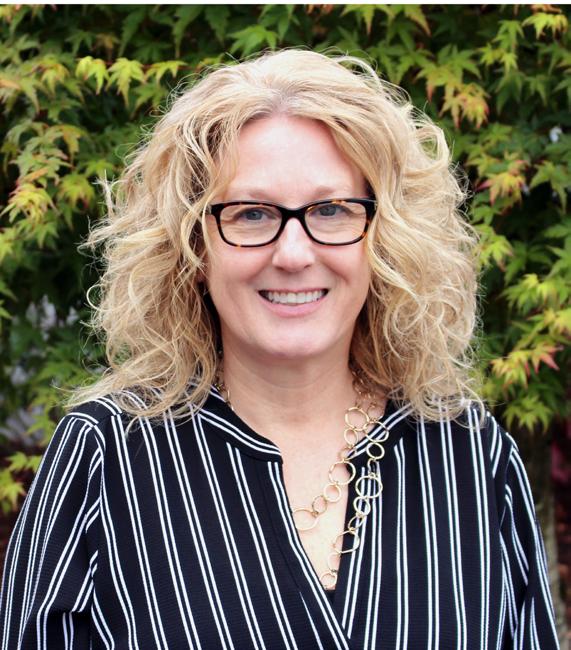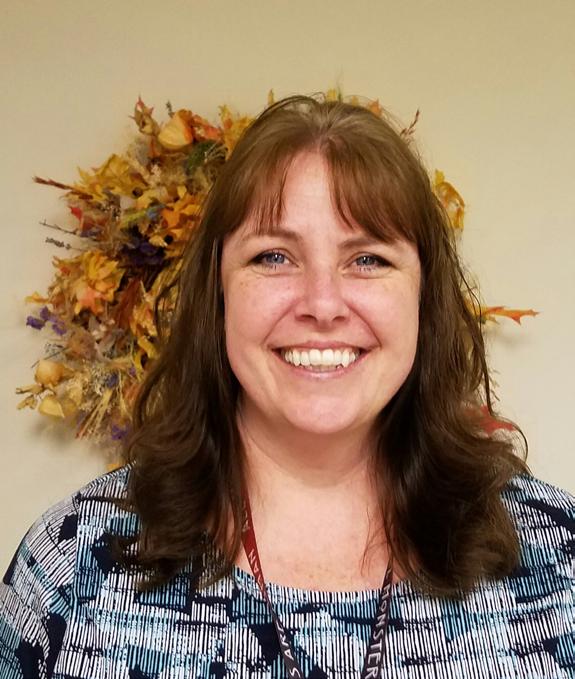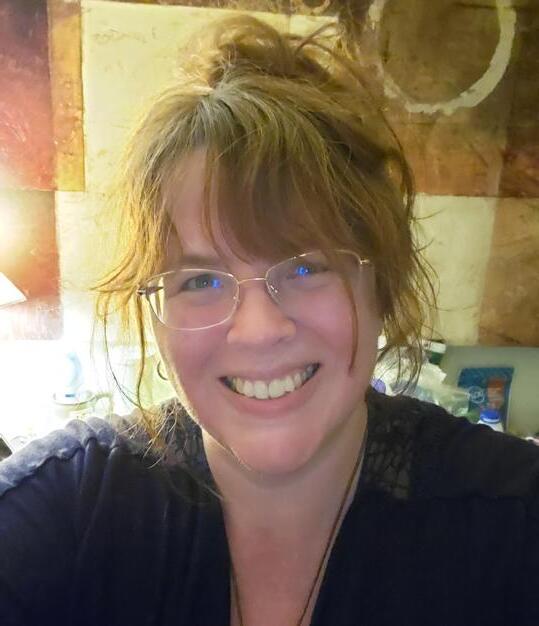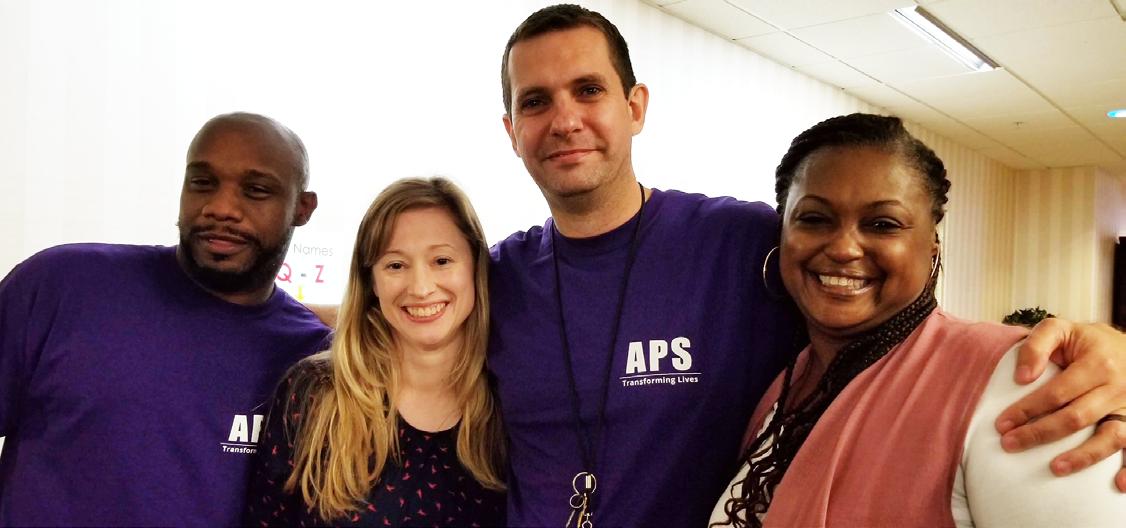2
SHEDDING LIGHT ON THE SILENT EPIDEMIC UNMASKING THE SHADOWS OF ADULT ABUSE









2
SHEDDING LIGHT ON THE SILENT EPIDEMIC UNMASKING THE SHADOWS OF ADULT ABUSE








Our mandate as professionals in this field is to safeguard the well-being of vulnerable adults. It is crucial that we educate ourselves and raise awareness about the various forms of adult abuse in order to better serve our clients and communities.
Adult abuse is a silent epidemic that affects millions of individuals worldwide. In many instances, victims suffer in silence, reluctant to seek help or report their abusers. This silence allows abuse to continue unabated, perpetuating a cycle of harm that can have profound, long-lasting consequences for the victims, their families, and society as a whole.
It is our duty as adult protective services professionals to recognize the signs of abuse and respond proactively. Awareness, education, and vigilance are key components in combating this pervasive issue.
Adult abuse can take many forms, including physical, emotional, sexual, and financial exploitation. In some cases, neglect can also be a form of abuse. While the elderly are particularly vulnerable to these forms of mistreatment, adult abuse can affect individuals of all ages with physical, cognitive, or emotional vulnerabilities.
One of the most important aspects of our work is empowering the individuals we serve to recognize and report abuse. Creating a safe and supportive environment that encourages open communication is key to fostering trust and building rapport. By providing information about available resources, rights, and options, we empower vulnerable adults to take control of their own lives and make informed decisions about their well-being.
Tackling adult abuse requires a collaborative approach that involves not only adult protective services professionals but also law enforcement,

healthcare providers, social workers, and community organizations. Working together, we can pool our knowledge, expertise, and resources to identify and address instances of abuse more effectively.
As professionals, we must continually strive to expand our knowledge and understanding of adult abuse. Regular training sessions and workshops can help ensure that our skills and awareness remain current, allowing us to provide the best possible care for the individuals we serve.
Lastly, it is essential that we support one another as professionals in this challenging field. The emotional toll of working with vulnerable adults and confronting abuse can be significant. By fostering a culture of open communication and mutual support within our teams, we can maintain our own well-being and continue to provide exceptional care for our clients.
Adult abuse awareness is a critical aspect of our work as protective services professionals. Together, let us commit to unmasking the shadows of abuse and shining a light on this critical issue.
As part of our commitment to raising awareness and taking action against adult abuse, I encourage each of you to visit the World Elder Abuse Awareness Day website. This valuable resource is dedicated to promoting education and understanding of elder abuse and offers tools and information to help us better serve our clients. By engaging with these resources and sharing them with our colleagues, families, and communities, we can help create a more informed and proactive network of professionals and advocates.
Together, let’s make a difference in the lives of vulnerable adults by shining a light on adult abuse and working tirelessly to prevent it. Your dedication, compassion, and expertise are instrumental in our collective fight against this silent epidemic.
“By remaining vigilant, informed, and compassionate, we can help ensure the safety and well-being of the vulnerable adults we serve.“
Individuals with developmental disabilities often face unique challenges in accessing equitable opportunities and securing their individual rights. To address these challenges, it is essential to raise awareness, promote understanding, and foster a more inclusive and diverse society. This article will discuss the significance of developmental disabilities awareness, its impact on creating equitable opportunities, and social services professionals’ role in supporting individuals with developmental disabilities.
Raising awareness about developmental disabilities is crucial in fostering understanding and promoting a culture of inclusion and respect for people with disabilities. Providing accurate information and dispelling misconceptions can help break down barriers and encourage communities to embrace diversity.
Achieving equity and securing individual rights for individuals with developmental disabilities are pressing concerns. As social services professionals, it is vital to understand and address systemic disparities and advocate for the rights of people with disabilities. This includes ensuring equal access to education, healthcare, employment opportunities, and community resources.
Equity requires recognizing the unique needs of individuals with developmental disabilities and working to create a level playing field. This means addressing how disability affects individuals and advocating for appropriate accommodations and support. By doing so, social services professionals can help create a more equitable society where everyone has an opportunity to thrive.
Social inclusion is critical to the well-being of individuals with developmental disabilities. Encouraging social participation enables these individuals to connect with their communities and contribute meaningfully to society. Inclusion involves providing equal opportunities to participate in social, cultural, and recreational activities and ensuring that individuals with developmental disabilities are accepted and valued.
The Role of Social Services Professionals Social services professionals are at the forefront of promoting developmental disabilities awareness, equity, and individual rights. They can contribute by:
• Raising Awareness: Use platforms such as social media, workshops, and seminars to inform the community about developmental disabilities, their impact, and the importance of inclusion.
• Providing Support: Collaborate with families, schools, and community organizations to provide appropriate resources, support, and accommodations for individuals with developmental disabilities.
• Encouraging Inclusive Practices: Collaborate with employers, schools, and community organizations to develop inclusive practices that accommodate the needs of individuals with developmental disabilities.
• Engaging in Professional Development: Stay informed about the latest research, resources, and best practices related to developmental disabilities to provide the best possible support to clients and families.
Promoting awareness and understanding of developmental disabilities is essential to foster equity, individual rights, and social inclusion. Social services professionals are critical in raising awareness, advocating for policy changes, and supporting individuals and families. Working together can create a more inclusive and equitable society where individuals with developmental disabilities can thrive and reach their full potential.

Jackie was born and raised in Aberdeen, WA and moved to the “big city” of Olympia in the early 90’s where she continues to reside with her husband, two dogs and a beautiful flock of about 30 chickens. As a mother of four young children and owner of an early childhood education center, Jackie was ready for a new adventure and sold the business and joined state service as a counselor at Western State Hospital as part of her internship for her master’s degree in counseling/ psychology from St. Martin’s University. It was while working as a counselor at Green Hill School with Juvenile Rehabilitation

Administration, where Jackie learned about Adult Protective Services (APS).
Jackie joined the APS intake team March 2007 and fell in love with the work. Over the years with APS, Jackie has worked as in intake specialist, investigator, supervisor of investigators, headquarters program manager, unit manager of intake and in late 2022, became the APS Office Chief for policy, training, and intake. She is hooked on APS work; finding no other type of work as rewarding, interesting, challenging, valuable or as important than helping to protect the most vulnerable.
Jackie and her team are dedicated to working hard to improve policies, training, and processes to improve outcomes.


Region 1 is fortunate to have Francisco Aleman join APS in our Union Gap office as the region’s first Social Service Specialist 1. Francisco came to APS after graduating from Central Washington University with a bachelor’s degree in law and justice. Francisco shared he was interested in a position with APS because while growing up, he always had a passion for helping those in need. Whether it was something small or something big, he always found it rewarding to help others. Francisco had a high school coach that also works for ALTSA and they would frequently talk about what it was like working with vulnerable populations. Francisco knew this was the direction he wanted to go with his career and to make a
difference in his community and help people. Francisco has worked hard during his first year with APS gaining valuable knowledge and skills. He was promoted to Social Service Specialist 2 in March, 2023. When Francisco was asked about his positive attitude, teamwork, and willingness to assist others, he said “I want to learn and do as much as possible to learn from everyone I work with. Thanks to my supervisor and coworkers who have worked with me, guided me, helped me, and have given me the tools for success, I feel confident in the work that I do at APS”. Francisco shared that he has found APS to be very rewarding because he knows what he is doing matters and is valued. Francisco stated what has been most impactful is knowing the difference he can make in people’s lives because helping the vulnerable population is something Francisco is very passionate about and is a never-ending learning experience.
Elizabeth is our fantastic APS Supervisor in the Lynnwood Office. She supervises both Financial Exploitation Specialists and Self-Neglect Specialists throughout Region 2. Elizabeth was born and raised on Vancouver Island outside of Victoria. She
received her BSW from the University of Victoria. Since graduating from college, she has had a variety of work experiences in the social services field such as working as an Indian Welfare Social Worker, head of social services in an assisted living, contract work with TANF clients to help refugees gain employment, APS supervisor for Region 3, RCS Complaint Investigator for Assisted Living, and then finally in June we were lucky enough to hire Elizabeth in Region 2.
In 2017, she married the star of the show Deadliest Catch. Her husband works on the crabber the Wizard. If you watch the show, he is the one with rain gear on. Elizabeth and her husband have a 3-year-old son named Caleb. He keeps them both on their toes.

What does Elizabeth like to do with all her free time? Which of course she has plenty of working full time and raising a 3-year-old. She loves to knit, garden, and run. I warned her about running with crochet hooks!


We are pleased that Elizabeth chose Region 2 as her new home!
Jennifer is an outstanding employee and a great team player. In just a short period of time as a leader, Jennifer has made a positive impact on our team and provided employees with resources and training to assist them with being successful in their jobs. She always volunteers to do additional tasks in the office and assists those who need help, offering her expertise to multiple projects. Jennifer has gone above and beyond to support the PCG project in order to help Region 3, while still supporting the Tacoma office through other tasks. Jennifer always goes beyond her job duties to serve vulnerable adults.
A few months ago, a man came into our office confused and disoriented. Jennifer and a lead investigator were able to help this man to make sure he was safely returned to his family; she never left the man until she found a solution, even if it meant going overtime. We admire Jennifer’s creativity and initiatives to always make our office run efficiently. We are truly happy and lucky to have Jennifer as part of our team.
 Elizabeth Schlosstein is an APS Supervisor in Region 2’s Lynnwood office in Washington’s Adult Protective Services
Francisco Aleman is a Social Service Specialist for Region 1’s Union Gap Office in Washington’s Adult Protective Services
Elizabeth Schlosstein is an APS Supervisor in Region 2’s Lynnwood office in Washington’s Adult Protective Services
Francisco Aleman is a Social Service Specialist for Region 1’s Union Gap Office in Washington’s Adult Protective Services
contracted work we completed with them at the end of 2022. Washington has opted to participate in this workgroup and meetings occur monthly.
Grant work continued throughout the winter and updates to major projects are included below. If you’d like to hear more about our grant work, contact
Victoria Gawlik MorseElder Justice Act – Grants to Enhance Adult Protective Services: This grant is in its final phase and will conclude in September 2023.

Risk and safety screening tools: Both the risk and safety screening tools that were developed are live and active in TIVA2 ad of December 16, 2022. In the spring the Data and Operations team will be taking the request to the Data Governance Board to have the data from these tools built into DataMart so that we will be able to look at safety concerns and risk factors for investigations in APS.
Forensic interviewing: The program entered into a new contract with the University of Washington Alliance (Alliance) to have them continue to facilitate the training through 2023. To date over 300 APS staff have been trained in forensic interviewing.

Self-neglect: Kathy Greenlee from ADvancing States (ADS) has kicked off a national workgroup on self-neglect based on feedback gathered from the multi-state survey that was part of the

Additionally, the executive leadership team has started the process of tracking the implementation of recommendations provided by the ADS report. There will be a follow up webinar this summer to discuss the status of the progress on the various recommendations provided and will provide staff an opportunity to ask questions. As a reminder, you can watch a recording of the self-neglect report presentation led by Kathy Greenlee on the APS SharePoint homepage.
This grant is in its final phase and will conclude in September 2023.
Mental health first aid: Training is still being offered monthly from multiple APS-certified trainers at no cost. Click here to be taken to the registration page on WSLC. Supervisor approval is needed prior to signing up for the course.
management
The Due Process Unit has entered into a contract to have a system built to support their day-to-day and planning activities. The build and training on the software is expected to take around 8 months.
Goods purchases: Each region continues to utilize grant funds for direct goods purchases to support alleged victims. Recent purchases include: socks, crockpot, plastic bins, and warm winter clothing.
Case aides: Two regions have hired case aides to support investigators in multiple ways depending on their individual needs. As this is a pilot project, the exact parameters of these roles continues to be defined based on staff feedback and collaboration.

Forensic interviewing: Work has started on the build of new curriculum in conjunction with the Alliance to incorporate the skills and training necessary for alleged perpetrator interviews for forensic interviewing. When this curriculum is complete it will replace the alleged victim-only training that is currently being taught to staff. A workgroup with HQ and frontline staff are responsible for providing feedback to the Alliance as the curriculum is being built.
Supervisor academy: The contract with the Alliance was recently finalized. Currently a number of supervisors and HQ staff are being selected to work with the Alliance in the development of the curriculum. Once completed, the content will be trained to a designated group of APS staff through a train-the-trainer model and will then be made available to APS supervisors moving forward. This work is expected to conclude in fall of 2023.
Program evaluation: To date, 25 APS staff members have been interviewed as part of the program evaluation with the University of Washington. In early March APS will meet with the evaluation team to review staff responses on both the survey and interviews. As a reminder, our evaluation team has worked with their institutional review board (IRB) to ensure that confidentiality is maintained throughout this process. While you may receive an email from an APS staff member with an invite to complete a survey or participate in an interview – what you say and share with the evaluation team is shared back in aggregate and no personal identifiers are, or will be, included.
The policy workshop took place on Tuesday, January 24th and Wednesday, January 25th.

This workshop was an opportunity for a combination of field staff, HQ staff, and policy subject matter experts to get together to discuss ideas on how APS policy could be enhanced and how communication regarding policy could be established. Participants had the chance to discuss several current policy areas that were brought up during roadshows, listening sessions, and the concerns workgroup.
These policy areas were: case linkages and case assignments, allegations in facilities, uploading standards, and TIVA2 documentation redundancies. Recommendations from the workgroup encompassed ways to clarify and expand these areas in order to better support field staff and alleged victims. Lastly staff were given the chance to think about how current and new policy is communicated and how those communication channels could be enhanced.
If you were a participant in this workshop – thank you for your time and dedication. If you weren’t a participant, see if you recognize any names on the charter and ask them to share their experiences or perspectives with you.
You can read more about this workshop (including the charter, agenda, and final report – once completed) and others like it on the new Innovations SharePoint page. Be sure to check back regularly as new content is being added as projects progress.

As each of the regions in the state now has a CISM Program Manager, it is now possible to provide the same types of support to each region and there some exciting things that we are working on for the coming months. As a team, we have been working together to develop “CISM Connection” trainings. These are trainings in which we present on a designated topic and are offered quarterly, with the first one being in March.
You have likely already seen each regional CISM PM offer monthly CISM drop-ins in which staff can join to ask questions about CISM, discuss workplace challenges and stress management, and/or to connect with colleagues. We are also scheduling “office hours” at each of the APS offices within our region. During “office hours,” we will be available for anyone who wants to have an in-person confidential consultation or debriefing following critical incidents. You will receive an email to let you know when we will be at your office, so please feel free to stop by and say hello and ask any questions that you might have.
Given the difficult work that you do, it can be challenging to prioritize, maintain, and integrate healthy self-care and wellness into your life. With this in mind, the CISM team is developing two separate self-care trainings. These trainings will be the first offerings of the quarterly “CISM Connection” and will also be offered on an ongoing basis to new staff as they begin their work with APS. Later in the year, you can look forward to additional CISM Connections trainings on secondary trauma and compassion fatigue. If there are any specific topics you would like to see in future presentations, please don’t hesitate to let us know. We are also available to present in unit meetings if there is something that would be relevant for your team, so reach out to your regional CISM PM if you are interested.

Whether it be in-person or virtually, we look forward to seeing you and being of support to you all!

It can often be difficult to organize and plan around an investigative caseload. Figuring out what’s already been done and what work remains is an important part of the process, but it can often be a time consuming endeavor. It can also be helpful to have data readily available to show how you are meeting expectations with the work you complete. Knowing how timely you were with your face-to-face visits, or a having a breakdown of your investigation findings over time can help with your future caseload planning and goals.
The APS Data Unit has heard your suggestions and working with the Power BI team we have come up with a sleek, intuitive, and practical tool to provide actionable data to you daily: The new Power BI Investigator Data Dashboard! The dashboard is designed to log you in automatically and is set up so only you and your supervisor can see your data.
The new Power BI Investigator Data Dashboard contains various reports in six interactive tabs to help you organize your current work and show your investigation data trends over time .
First is the Caseload Detail tab which shows the open investigations on your caseload and includes:
• Count of Open Investigations
• Count of Pending Approvals
• Investigation ID
• Days Open
• Investigation Created Date
• AV Full Name
• AP Full Name
• Response Times
• Last Case Note Date
• And Much More!
The AV Interview tab lists the investigations where the AV interview is not complete and the city they live in to
help in planning your field visits. It also lists AV’s who are not yet linked to person management and which investigations still have pending initial face to face visits.
*CLICK TO ENLARGE*
When documentation is kept up to date in TIVA2, this tab can be immeasurably helpful in planning your day in the field.
Similar information can be found on the AP Interview tab. This tab lists out the AP’s who are not yet linked to person management and which AP interviews are incomplete in TIVA2.
One of the best parts of the APS Power BI Investigator Data Dashboard is the investigation IDs listed along with the data on each of the above tabs are all hyperlinks and will take you directly to the piece of work in TIVA2 so you can make take action on your investigations right from the dashboard!
The Monthly Summary, Yearly Findings Summary, and Yearly Services Summary tabs in the dashboard summarize your progress for important measurables on your caseload, such as how many newly created investigations you received in a month vs. how many you closed.
*CLICK TO ENLARGE*
Or tracking your IFF Timeliness by Priority from month to month:
*CLICK TO ENLARGE*
There are graphs to show a summary of your yearly findings:
The2023 Legislative session continues to provide many opportunities for change and innovation across departments in Washington State. Legislative session requires quick responses, a fast pace, and the ability to pivot at any moment. APS has once again risen to the challenge to pivot and respond to challenges presented for requested legislation.
And also a graph to show a history of how many protective services were offered, accepted, and completed for your investigations closed each month:
APS originally proposed the language found in House Bill (HB) 1127 after several years of discussions with stakeholders to identify solutions to permanent appointments of perpetrators on the Vulnerable Adult Abuse Registry as well as technical changes to chapter 74.34 RCW. APS hoped 2023 would be the year to have the registry removal process passed into statute. Due to last minute considerations, support for the registry removal process was withdrawn and APS had to pivot to continue efforts to revise chapter 74.34 RCW. APS proposed Senate Bill (SB) 5370 and HB 1528 (companion bill to SB 5370) to continue momentum for the technical changes to chapter 74.34 RCW.
The technical changes found in SB 5370 and HB 1528 proposes to update the definition of individual provider to align with CDWA implementation, reinstate employees of the Department of Children, Youth, and Families as mandated reporters of vulnerable adult mistreatment, allow APS to acknowledge whether an investigation exists with consideration for safety concerns, permit coroners to share their reports with APS to assist with evidence gathering for investigations and fatality reviews, and include the Developmental Disability Ombuds under RCW 74.34.095.
The Power BI Investigator Data Dashboard is out, and if you didn’t have an opportunity to take one of the webinar trainings offered by the data unit you can watch the recorded webinar training on the APS Data Units SharePoint page.
A user guide for the data dashboard is also available at our SharePoint page.
Due to efforts to address high priority bills and reduce workload for the Senate and House of Representatives (House), it was determined that HB 1528 would not be heard by the House and SB 5370, once passed from the Senate, would be considered by the House. Therefore, HB 1528 is considered “dead”, and SB 5370 is now the bill of focus for potential changes to chapter 74.34 RCW for the 2023 Legislative session. APS is hopeful the momentum will continue for SB 5370 as it is considered by the House.
Reach out to Arielle Finney at Arielle.Finney@dshs. wa.gov if you have questions.
*CLICK TO ENLARGE*
*CLICK TO ENLARGE*
 by Michelle Joseph, CDE Equity, Diversity, Access, and Inclusion Administrator
by Michelle Joseph, CDE Equity, Diversity, Access, and Inclusion Administrator
Did you know that Women’s History Month is observed in March of every year? Did you know that International Women’s Day was on March 8th? This is such an important observance for women all over the world! The theme for 2023 is #EmbraceEquity! Take a moment, embrace yourself, take a picture and title it #EmbraceEquity!
Why should we embrace equity?
Women continue to deal with issues of disparity all over this world. It is draining, stressful, hurtful, we experience feelings of defeat, and we suffer the most from imposter syndrome. In a survey reported by Forbes Magazine, 75% of women surveyed experience imposter syndrome. (Forbes, 2020) Most likely, many of you may also feel this way and we’d like to encourage you to break what is called the glass ceiling!
What is the glass ceiling?
The glass ceiling was coined by Marilyn Loden while participating on a panel at the 1978 Women’s Exposition in New York. She quotes “It seemed to me there was an invisible barrier to advancement that people didn’t recognize,” Loden said. That day, she called it the “glass ceiling.” It is “glass” because it’s not usually a visible barrier, and a woman may not be aware of its existence until she “hits” the barrier. Some examples of glass ceiling barriers include societal barriers, difference barriers, maternal walls, bamboo ceiling, concrete barriers, and glass escalator.
The glass ceiling keeps people from advancing into certain jobs, despite being well qualified and deserving. It affects a person’s career trajectory, their status, and earning potential. Here’s the other thing, it doesn’t end when we leave work, it carries over into our personal lives as well and impacts our mental, emotional, and physical health. The panel that Marilyn Loden participated on that day she coined the term was called “Mirror, Mirror, on the Wall”. She felt it was fitting because the discussion centered on how women, and their self-image, were to blame for their lack of advancement in the workforce. Some examples of glass ceilings include gender, cultural, racial, and invisible glass ceilings. Although this discussion was in 1978, women are yet impacted by the glass ceiling phenomenon.
We know the story of Snow White and have heard it referenced for many years. The evil queen would ask her magic mirror “Magic Mirror on the wall who is the fairest of us all?” The mirror would
always reference Snow White. The last thing we should do is compare and put down our sisters in this world to advance ourselves. Societal norms and life experiences would have us look in the mirror and think we are not enough. We don’t look a certain way, talk a certain way, or act according to the norms of embedded cultures. It is important that we uplift and build one another up. If we work with to strengthen and support each other, we may get to a place where glass ceilings are shattered as a societal norm! We can build on the strength of each other. What you have knowledge of, you can share with your sisters. Your experience in life and lessons learned, you can encourage and mentor others to their successful place. I invite you to take a moment, look out amongst you, discover someone that you’d otherwise not connect with, and work to establish a relationship to break the glass of who is the fairest of us all. Knowing that we can all exist and be great in this space together!
If you are yet looking for ways to smash the glass ceiling, consider the following recommendations:

• Recognize that they exist.
• Recognize that the glass ceiling is no reflection of your value as a person or as an employee.
• Recognize and share with leaders this effect and how it shows up in meetings, decision making, promotions, etc.
• Recognize that all the many layers of who you are creates your thinking style, your personality, etc.
• Recognize your-SELF!
• Self-Value
• Self-Worth
• Self-Image
• Self-Talk
• Self-Love
• Self-Care
I was reminded of a commercial from way back in the 70s for Enjoli perfume. It said “I can bring home the bacon, fry it up in a pan, and never ever let you forget…” that you are woman who has broken the glass ceilings in life! Many see you, you are valued, you are beautiful, you are smart, and you belong here!

A little compassion and professionalism can go a long way in transforming the lives of Washington’s vulnerable adults
During the course of an APS investigation involving recent allegations of sexual abuse involving two individuals residing at a supported living residence, our APS investigator discovered the only caregiver in the home was outside smoking a cigarette and talking on their phone. Our investigator professionally brought it to the immediate attention of the caregiver that one of the residents was supposed to be in “line of sight”. The caregiver was unaware of the line-of-sight
status and had not made herself familiar with the resident’s care plans. Our investigator also identified there was a lack of staff at the supported living home to keep all the residents safe. They immediately acted and began to utilize their relationships with our community partners to reach the appropriate agencies to rectify the staffing shortage.
Over the course of the investigation, the investigator remained committed to ensure the safety of all residents at this supported living. The investigator hosted a Regional
Resource Team meeting and brought together DDA case managers along with the supported living house manager and administrator. There was a plan put into place to ensure there was always a 1:1 staffing in this home along with a back-up plan in the event of staff shortages. Our alleged victim was receiving the level of care and support they needed, however, they had previously expressed a desire to relocate to a home closer to their parent. The DDA case manager was looking into those options.
APS client who was a Service-Disabled U.S. Navy Veteran who suffered a stroke in 2021 that severely impacted their mobility and balance which left them needing a walker, as well as assistance with activities of daily living and instrumental activity of daily living. The lack of involvement by their family and their insistence that they did not need their help resulted in the client becoming involved with a younger individual who the client met, leading to the younger individual moving in with the client. They promised to help the client as an informal caregiver.
Because they were not receiving the supervision and care that they needed, they became involved with APS via four separate reports being made. Three in 2021 and one in early 2022. APS presence resulted in their reconnection with local family members, in particular their son and daughter; and their daughter becoming the client’s acting Attorney in Fact, moving them away from their apartment and not so good situation with their younger friend, into their own place where they could be properly helped and cared for.
Unfortunately, because their younger friend had assumed control of the old apartment and belongings, they lost everything that they owned upon leaving the apartment. APS helped the client get approved for Medicaid resulting in-home care services in their new apartment involving 2-3 caregivers a week, VA Transportation services for healthcare/services appointments, and was also able to help the
client setup their new apartment and living situation with items obtained via the COVID-19 Relief Funds. Both the client their daughter informed APS that it was truly a blessing the help, assistance, and items that they received from APS.
Areferral came in for self-neglect for a client who was making self-defeating choices and who had stopped caring for both their self and home related to grief and loss following the death of their mother and beloved pet within a short period of time. The condition of the home was considered a hoarding environment and the client had gone to the hospital on multiple occasions for suicidal ideation.
The client was in fear of getting evicted and caregivers declined to provide care due to major concerns with going into the home. The investigator was able to build rapport with the client through multiple home visits and long conversations, slowly building trust and offering assistance at each contact. After some time, the client consented to intervention services aimed at cleaning out the home and to caregivers to assist with sustaining the environment and assisting with their care needs.
The investigator worked with the regions Outreach & Engagement Specialist and the case was reviewed at the Shared Interest Staffing Meeting. Referrals were also made to Developmental Disabilities Administration, the local Area Agency on Aging and Catholic Community Services Chore Program, Clutters Anonymous. Following the clean out services at the home, the client is now able to receive the caregiving assistance they need to have quality of life in a safe, healthy environment.
Understanding how our unique experiences contribute to a stronger and more diverse workforce
Family and a strong sense of compassion have played a crucial role in shaping Leonardo’s life and career. As the Adult Protective Services Supervisor at the Seattle Holgate Office, Leonardo has dedicated himself to protecting vulnerable adults, inspired by the lessons he learned growing up in Paraguay.

These values stuck with Leonardo throughout his life. After high school, he served as a missionary for two years, an experience that led him to pursue a career in psychology. He later volunteered in social services through his church and community groups, further developing his compassion and dedication to helping others.
Leonardo’s family faced significant challenges in their lives. His father, who was initially rejected by society due to his socio-economic background, grew up to be a person who loved helping others. Leonardo’s mother, on the other hand, chose to leave a more privileged life to be with Leonardo’s father. Despite their struggles, they raised eight children with a strong focus on humility, social responsibility, and the importance of helping others.
In 2015, Leonardo left his role as the marketing and promotions manager at a pharmaceutical company, and moved to the United States after falling in love with his wife. He began his career in social services as a mental health counselor before joining APS. Leonardo’s experience as a counselor helped him avoid prejudgments and foster compassion, qualities he believes are essential in his current role as an Adult Protective Services Supervisor.
Living in Washington has provided Leonardo with the opportunity to enjoy the beauty of nature, particularly Mount Rainier, as well as the diversity of the state. His love for his family and spending quality time with them is evident in his favorite activities: going to the movies, watching movies at home, playing board games together, and traveling.
With nearly four years in his current role at APS, Leonardo is grateful for the familylike environment he experiences with his colleagues, supervisors, and program manager. He feels extremely fortunate to be part of a team that is always ready and open to cooperating and supporting one another. They share common values, such as doing everything possible to protect vulnerable adults and making justice for those who jeopardize their safety.
Leonardo’s team at APS goes beyond their professional duties and responsibilities. They are passionate about their work, consistently striving to go the “extra mile” in support of the vulnerable adult community. Despite the challenges they have faced, including the pandemic, they continue to stand strong and committed to their mission.


His life and career have been significantly shaped by his compassion, humility, and service to others. His dedication to protecting vulnerable adults at APS is a testament to the lessons he learned growing up and the love he shares with his own family.

Leonardo’s journey serves as an inspiring example of the difference one can make in their community. By embracing the mission of APS and working with passion, APS professionals can contribute to their growth and achievements while honoring the legacy of those who have guided and inspired them along the way.



Grab a cup of coffee and call-in to chat with APS Director Kathy Morgan!

This casual chat is the perfect opportunity to learn about what’s new with APS and ask any question you’d like! Want to learn more about employee engagement, training, roadshow updates or Kathy’s favorite restaurant? Ask away! She’s happy to chat about anything.
Quarterly Staff Updates: 2023 Dates



Tuesday, April 25th
Tuesday, July 25th
Tuesday, October 24th
